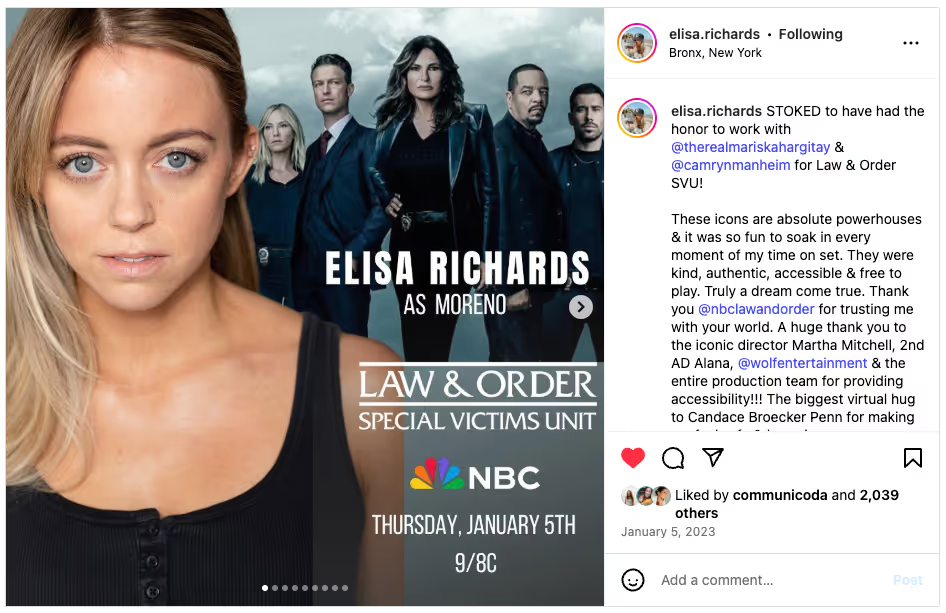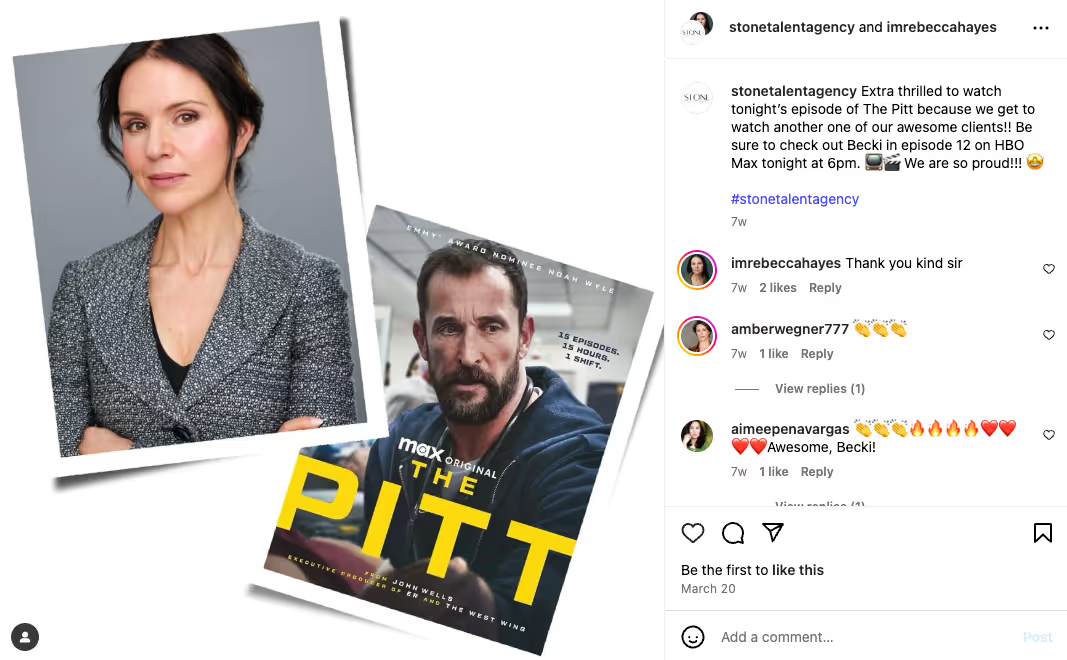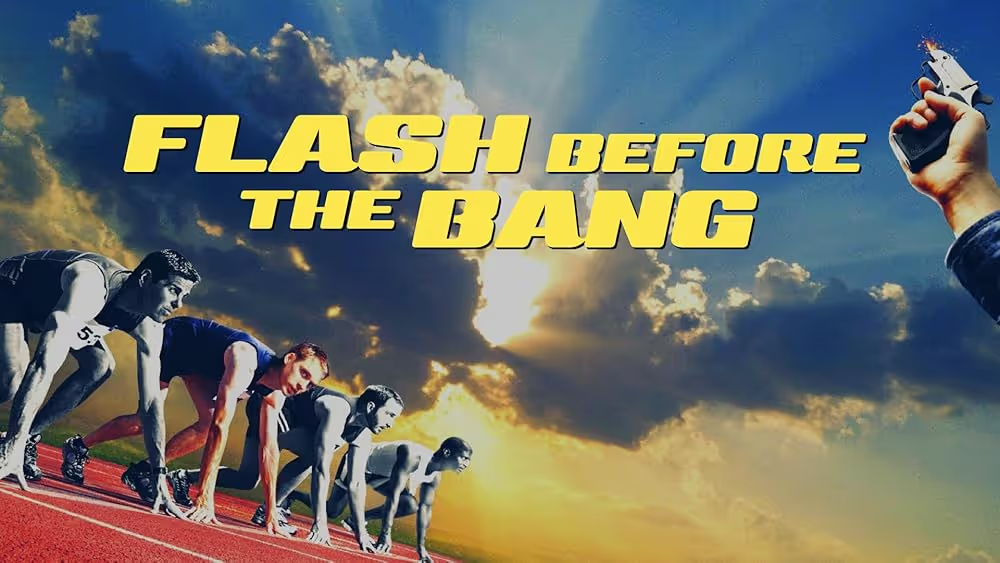Updated May 2025
In the ever-evolving landscape of entertainment, the power of representation has become a dynamic force that resonates far beyond the screen. As we continue to celebrate diversity and champion inclusivity, we also witness the profound impact of D/deaf and hard of hearing actors and actresses in both television and film. Their presence brings forward authentic narratives, amplifying voices and experiences that have long been underrepresented in mainstream media.
These TV shows and movies don’t just reflect the world we live in—they actively reshape it. By creating space for D/deaf and hard of hearing individuals to take the spotlight, they challenge stereotypes, foster empathy, and offer viewers a richer, more inclusive viewing experience. This blog celebrates the standout titles that are paving the way for greater representation, and the doors they continue to open for future storytelling.
Netflix’s Deaf U offers an unprecedented look into the lives of Deaf and hard of hearing students at Gallaudet University, a world-renowned institution for the Deaf community. Co-produced by Deaf activist Nyle DiMarco, the series breaks new ground as the first reality show to center the Deaf experience.
The show highlights the diversity within the Deaf community, exploring a range of backgrounds, communication styles, and cultural values. It delves into campus dynamics—such as the tension between the so-called “Deaf elite” and first-generation Deaf students—while also following personal stories about identity, relationships, and ambition. Through the cast’s openness, Deaf U fosters candid conversations that both entertain and educate.
By challenging monolithic portrayals of Deafness, the series affirms that there is no single way to be Deaf. Its raw, unfiltered approach humanizes its subjects and dismantles stereotypes—offering not just visibility, but visibility with depth and nuance.
Marvel’s Echo centers on Maya Lopez, a Deaf, Indigenous, and amputee antihero portrayed by Alaqua Cox. Spinning off from her debut in Hawkeye, the series follows Maya as she returns to her hometown in Oklahoma, confronting the shadows of her past and reconnecting with her Choctaw heritage.
What makes Echo stand out is how deeply it incorporates Deaf culture into both character development and visual storytelling. Maya communicates primarily through American Sign Language (ASL), and the series is crafted to highlight the rhythm, expressiveness, and silence central to Deaf communication. Rather than being translated for convenience, ASL is treated as a natural and powerful part of Maya’s world.
The show uses visual cues, facial expressions, and body language to build tension and connection, reflecting the norms of Deaf culture and offering a cinematic experience that prioritizes accessibility and authenticity. Maya’s Deafness isn’t framed as a limitation—it’s an integral part of how she interacts with the world and defines her identity.
HBO’s The Last of Us is known for its emotional depth, and one of its most poignant story arcs comes through the character of Sam, portrayed by Deaf actor Keivonn Woodard. In a departure from the original video game, the show reimagines Sam as Deaf, adding vulnerability and strength to a brief but unforgettable storyline.
Sam and his older brother Henry are trying to survive in a crumbling world. Their bond—rooted in trust, tenderness, and shared trauma—is expressed primarily through ASL, with Woodard capturing the innocence of childhood and the weight of fear with remarkable subtlety.
Though short-lived, Sam’s arc is one of the most emotionally affecting in the series. By casting a Deaf actor in a Deaf role and giving that character meaningful depth, The Last of Us sets a powerful precedent for emotionally grounded and authentic representation.
In the episode “Jumped In,” Elisa Richards portrays Moreno West, a Deaf survivor of a serial sexual predator who had previously targeted students from a local Deaf school. After years of silence, Moreno bravely steps forward to testify, reigniting the investigation and empowering others to reclaim their voices.
Richards delivers a layered and emotionally resonant performance, capturing Moreno’s pain, courage, and resilience through expressive ASL and quiet strength. The episode highlights the systemic barriers Deaf survivors often face—from delayed interpreter access to emotionally taxing legal procedures. Through Moreno’s story, viewers witness the emotional toll of seeking justice in a system unprepared to accommodate Deaf experiences.
More than a supporting character, Moreno becomes a symbol of advocacy and perseverance. The episode stands out for its candid portrayal of accessibility gaps and its insistence that justice must be inclusive, trauma-informed, and linguistically competent. Richards’ performance leaves a lasting impact.

In The Magicians, Marlee Matlin portrays Harriet Schiff—a brilliant, principled magician fighting for access and inclusion in a magical world shaped by secrecy and elitism. Her character challenges the status quo, advocating for transparency and equitable knowledge-sharing.
Harriet’s Deafness is fully integrated into the show’s world-building. She communicates through ASL, and in one of the series’ most impactful moments, her backstory is told through a near-silent episode that immerses viewers in her perspective. This sequence transforms ASL from a communication tool into a striking cinematic device.
Matlin’s performance is commanding and emotionally resonant. Harriet doesn’t merely exist in the narrative—she transforms it, standing as a powerful symbol of inclusive design within fantasy storytelling.
In NBC’s New Amsterdam, Sandra Mae Frank portrays Dr. Elizabeth Wilder, a Deaf surgeon whose arrival transforms the hospital’s dynamic. Dr. Wilder is confident, capable, and composed, modeling a leadership style rooted in excellence, empathy, and accessibility.
Her interactions—whether with patients, hearing colleagues, or fellow Deaf professionals—underscore the importance of communication equity in healthcare. Through ASL, interpreters, and adaptive tools, the show portrays accessibility as a medical necessity—not a convenience. Guest appearances by Marlee Matlin further enrich the storyline, reinforcing the show’s commitment to authentic Deaf representation.
Dr. Wilder’s presence isn’t framed as an exception—it’s a roadmap for inclusion. Her role challenges medical drama conventions and affirms that accessibility is central to equitable, effective care.
In the emotionally charged episode “6:00 P.M.,” Becki Hayes plays Sylvia, the mother of Omar, a Deaf teenager critically injured during a mass shooting at a campus music festival. As the hospital scrambles to respond, Sylvia confronts the dual burden of parental grief and systemic inaccessibility.
Hayes offers a compelling and grounded performance as a mother navigating trauma, uncertainty, and the urgent need for effective communication in a setting unprepared for Deaf patients. Sylvia’s scenes highlight critical issues like interpreter access, medical decision-making, and cultural sensitivity in emergency care.
Rather than treating Deafness as incidental, the episode centers Sylvia’s perspective. Her advocacy underscores the life-saving importance of accessible systems—and the human cost when those systems fail. Hayes’ portrayal brings authenticity and heart to a story that challenges viewers to consider what true inclusion means.

Winner of the Academy Award for Best Picture, CODA (Child of Deaf Adults) is a landmark in Deaf representation on screen. The film follows Ruby Rossi, a hearing teenager and aspiring singer, who serves as the sole interpreter for her Deaf family. Emilia Jones plays Ruby, with Troy Kotsur (Frank), Marlee Matlin (Jackie), and Daniel Durant (Leo) authentically portraying her Deaf parents and brother.
Set in a coastal fishing town, the story explores the tension between familial duty and personal ambition. Ruby grapples with her desire to pursue music while feeling tethered to her family’s reliance on her for communication. The film’s authenticity is amplified by casting Deaf actors in Deaf roles, delivering emotional depth that resonates across cultures. Kotsur’s Oscar-winning performance, in particular, offers a nuanced portrait of fatherhood, vulnerability, and pride.
CODA not only entertains but also educates, illuminating the complexities of Deaf identity and the transformative power of representation in media.
Creed III introduces Amara Creed, played by Mila Davis-Kent—the first Black Deaf actress to have a major role in the franchise. Amara, the daughter of Adonis Creed and Bianca, communicates through ASL, and her Deafness is portrayed not as an obstacle, but as an integral aspect of her identity.
The film explores the family’s communication dynamics, with Adonis learning sign language and fully engaging with his daughter’s world. Davis-Kent’s performance brings youthful energy, emotional authenticity, and a fresh narrative layer to the iconic boxing saga.
Creed III affirms that meaningful representation can coexist with legacy storytelling, enriching its emotional impact and cultural relevance.
In Marvel’s Eternals, Lauren Ridloff portrays Makkari—the MCU’s first Deaf superhero. A speedster with heightened sensory perception, Makkari communicates through ASL, which is seamlessly woven into her action sequences and interactions.
Ridloff’s portrayal redefines traditional superhero archetypes, showing that Deafness is not a limitation but a unique strength. Makkari’s ability to feel vibrations is used as a strategic asset, reinforcing the idea that diverse abilities bring value and perspective to even the most fantastical narratives.
Her presence in a Marvel blockbuster has inspired audiences worldwide, particularly Deaf children seeing themselves represented on such a grand stage. Eternals marks a major step toward inclusive storytelling within the superhero genre.
Upcoming film, Flash Before the Bang, centers on a Deaf high school track team navigating competition and discrimination while striving for greatness. With a cast led by Daniel Durant and Troy Kotsur, the film draws inspiration from the true story of the Oregon School for the Deaf’s 1986 state champion track team.
What sets this film apart is its full embrace of Deaf culture—from casting to language to storytelling. Rather than portraying Deafness as a barrier to overcome, the film celebrates it as a foundation for strength, community, and resilience.
As anticipation builds, Flash Before the Bang stands poised to set a new benchmark in Deaf-led cinema and reaffirm the power of representation on and off the screen.

In the genre-defining thriller A Quiet Place, Millicent Simmonds delivers a standout performance as Regan Abbott, the Deaf daughter in a family surviving in silence to evade sound-sensitive creatures. Regan’s Deafness is central to the film’s premise and survival strategy, with ASL functioning as both a communication tool and a narrative device.
Simmonds, who is Deaf in real life, brings authenticity to the role. Her performance adds emotional weight and agency to the story, portraying Deafness not as a vulnerability, but as a source of ingenuity and strength.
A Quiet Place helped catalyze broader conversations around inclusive casting, demonstrating that Deaf actors bring irreplaceable depth and perspective to genre storytelling.
As the film and TV industry continues to expand its commitment to inclusive storytelling, we hope to see even more Deaf and hard of hearing actors and actresses on our screens. Have a favorite we missed? Let us know in the comments—we’d love to hear what’s on your watch list.
Want more? Check out our roundup of Deaf and hard of hearing actors to keep on your radar—and be sure to watch out for these stars and more in upcoming productions.
InnoCaption provides real-time captioning technology making phone calls easy and accessible for the deaf and hard of hearing community. Offered at no cost to individuals with hearing loss because we are certified by the FCC. InnoCaption is the only mobile app that offers real-time captioning of phone calls through live stenographers and automated speech recognition software. The choice is yours.
InnoCaption proporciona tecnología de subtitulado en tiempo real que hace que las llamadas telefónicas sean fáciles y accesibles para la comunidad de personas sordas y con problemas de audición. Se ofrece sin coste alguno para las personas con pérdida auditiva porque estamos certificados por la FCC. InnoCaption es la única aplicación móvil que ofrece subtitulación en tiempo real de llamadas telefónicas mediante taquígrafos en directo y software de reconocimiento automático del habla. Usted elige.